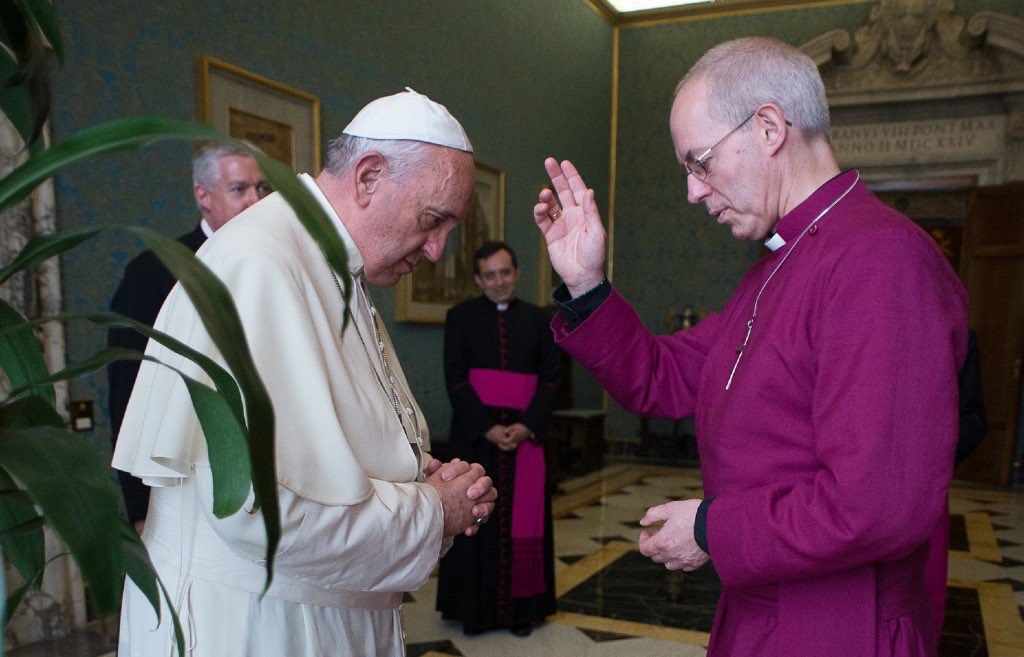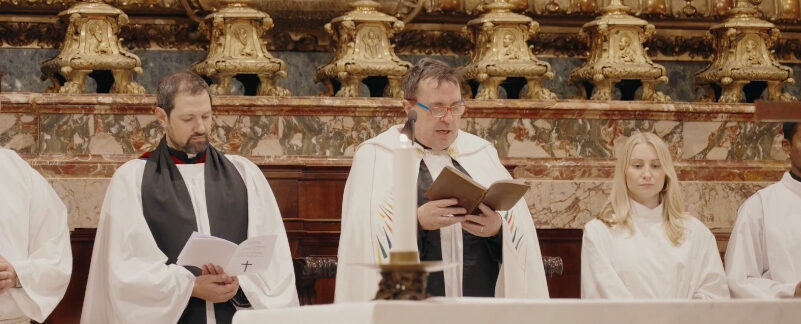In the old moral manuals, Catholics could occasionally pray with Protestants in private environments as long as these requirements were met: “It is not forbidden to pray or sing privately with heretics if the prayers or songs are not heretical and no scandal is given.”—Moral Theology #125 by Fr. Heribut Jone, OFM Cap, 1929.
However, Catholics doing public or liturgical prayer with Protestants or other heretics has always been strictly forbidden.
See the Anglican Vespers which took place at St. Peter’s, p/c LifeSite News. The prohibition against Catholics praying publicly with heretics or infidels has been clearly outlined by Popes and Saints for nearly 2,000 years:
“The Apostolic See has never allowed its subjects to take part in the assemblies of non-Catholics.”—Pope Pius XI, Mortalium Animos, #10, 6 January 1928
“It is not permitted to be present at the sacred rites of infidels and heretics in such a way that you would be judged to be in communion with them.”—St. Alphonsus Liguori, Doctor of the Church, Theologia Moralis, Lib.5, Tract. 1, Cap. 3.
Again, private prayer is different from public prayer. Catholics may not join others in public worship because heretical worship is displeasing to God. I believe the following public services (non-worship) may be permitted, but I’m open to correction:
– In my opinion, Catholics can attend non-Catholic marriages when neither spouse is an ex-Catholic. (But I suggest you still refrain from joining them in vocal prayer. Maybe just pray a Rosary silently that everyone there become Catholic.)
– I think Catholics can attend non-Catholic funerals (as long as the deceased is not an ex-Catholic.) Again, pray in silence in the back, refraining from heretical or infidel worship if there be any public prayers.
– The above two bullet points would obviously exclude services with Hindus, as Hinduism (and other such world religions) are only demon-worship (cf. Ps 95/96.)
Still, the bold-font quotes above from a Pope and a Doctor of the Church are by far the most important assertions of this article in light of current events of the Catholic Church.

